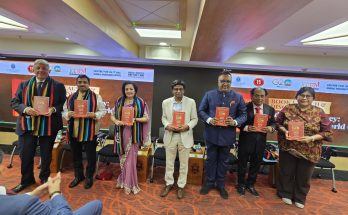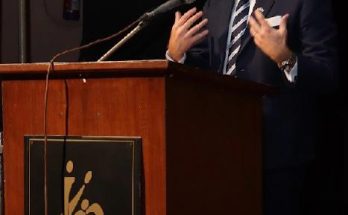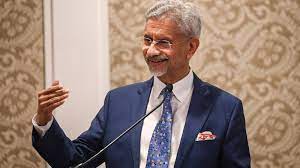 Barely days after meeting the leader of Europe’s most powerful economy in New York at a summit meeting to push the UNSC reforms, Prime Minister Narendra Modi will be engaging German Chancellor Angela Merkel for full-spectrum talks in New Delhi and seek Berlin’s renewed support for his pet projects of national renewal, including Make in India, Skill India and Smart Cities.
Barely days after meeting the leader of Europe’s most powerful economy in New York at a summit meeting to push the UNSC reforms, Prime Minister Narendra Modi will be engaging German Chancellor Angela Merkel for full-spectrum talks in New Delhi and seek Berlin’s renewed support for his pet projects of national renewal, including Make in India, Skill India and Smart Cities.
New and Intensive Phase
The fact that Ms Merkel is bringing with her six senior ministers and top corporate honchos for the October 4-6 trip to New Delhi and Bangalore underlines that the two countries are looking to push the envelope for what Europe’s top economy and Asia’s third largest economy can do together in a host of areas, including manufacturing, skill building, defence, vocational education and high-end R&D, core thrust areas of the burgeoning India-Germany partnership.
Taking off from his visit to Germany six months ago, Mr Modi has his priorities clear in terms of shepherding the future trajectory of this critical relationship. The meeting between Mr Modi and Ms Merkel on October 5 will review progress in focus areas and is expected to culminate in signing a spate of pacts covering the country’s new development template, including ‘Make in India’, ‘Skill India’, ‘Clean Ganga’, ‘Clean India’ and ‘Smart Cities’.
The inter-governmental consultations comes at a time when the India-Germany strategic partnership has entered “a new and more intensive phase,” and there is a dovetailing of the India growth story with Germany’s drive to seek enhanced engagement with one of the world’s fastest growing economies. The format of IGC is striking as six cabinet ministers from both sides will sit across each other in a power-packed meeting, which has been appositely described by Germany’s ambassador to India Martin Ney as “a joint cabinet meeting.”
B for Business
The overarching focus of the interaction will be to provide a fresh ballast to two-way investments. In many ways, Germany, which has ploughed in over $8 billion into India, is vital to India’s growth ambitions and its drive to seek FDI to shore up the country’s creaky infrastructure. Besides ventures in collaborative manufacturing, the two sides will be looking at areas like IT, ITES, biotechnology, auto components, green energy technology, urban development and transportation, and the entertainment industry. Although there are 1700 Indian companies operating in India, there is clearly room for more, specially German Medium Enterprises (Mittelstand), which keep the German economy humming. Germany is the 8th largest foreign direct investor in India since 2000, with German FDI over the last two decades valued at US$ 8.25 billion. Germany is India’s seventh largest trade partner, with bilateral trade at 15.96 billion euros (as of 2014-2015).
Walk the talk
 There are soaring expectations, and the sky is the limit but for a quantum jump in German investments, Prime Minister Modi has to deliver on his promise of ease of doing business at Hannover Messe, where India was the guest of honour, in April. 2015. The German ambassador has rightly listed issues that need urgent resolution, including “questions of corruption, questions of framework for investments, safety of taxation, Intellectual Property Rights” and legal redressal for “ease of doing business.” “Industries say we need greater progress in order to implement these planned investments. The two leaders will address these issues definitely in a friendly manner,” Mr Ney said ahead of Chancellor Merkel’s meeting.
There are soaring expectations, and the sky is the limit but for a quantum jump in German investments, Prime Minister Modi has to deliver on his promise of ease of doing business at Hannover Messe, where India was the guest of honour, in April. 2015. The German ambassador has rightly listed issues that need urgent resolution, including “questions of corruption, questions of framework for investments, safety of taxation, Intellectual Property Rights” and legal redressal for “ease of doing business.” “Industries say we need greater progress in order to implement these planned investments. The two leaders will address these issues definitely in a friendly manner,” Mr Ney said ahead of Chancellor Merkel’s meeting.
Encapsulating the Indian business community’s expectations, Jyotsna Suri, the president of FICCI, said: “The view on both sides is that ‘Make in India’ offers huge potential, especially with the Indian government driving hard on the ease of doing business.” “It is noteworthy that German companies that already make in India have brought along their global business networks, advanced technology and know-how to help sharpen India’s industrial and competitive edge. We would like to see German manufacturers expand their supply base in India and increase localization,” Ms Suri wrote in an article ahead of the German chancellor’s visit.
Defence: Make in India
Another major takeaway from the German chancellor’s visit could be firming up of a joint production of high-end defence platforms, which will boost Make in India project aimed at indigenizing industrial-military complex. The two projects that are expected to get a push include the joint production of a new class of torpedo for India’s Scorpene submarines and the contract for six new submarines under the P 75I project, for which German company ThyssenKrupp is one of the four contenders.
Fast-tracking India-EU trade pact
Besides enhancing bilateral collaboration across the spectrum, PM Modi looks set to seek the German Chancellor’s support for fast-tracking negotiations for the broad-based trade pact between India and the EU, which has been embroiled in differences over a host of contentious issues, including those relating to intellectual property regime (IPR). The EU has also been demanding duty cuts for exporting automobiles to India and reduction in duties on wines/spirits and dairy products, which is not acceptable to India.
India has expressed disappointment and concern over the EU banning sale of around 700 pharma products clinically tested by GVK Biosciences and deferred talks for the proposed free trade agreement. India’s Commerce and Industry Minister Nirmala Sitharaman has said that India is interested in reviving negotiations with the EU, but the 28-nation bloc has to respond to issues related to the pharmaceutical sector. “It was high time that parleys on it should resume because it will help to resolve issues on the negotiating table. India, he felt, should be part of the network of trade agreements among countries globally,” said the German ambassador.
Issues relating to visa liberalisation and data security will also figure in discussions. PM Modi is specially going to pitch for India being granted ‘data-secure’ nation status and underline the importance of India’s strong and globally competitive data IT industry. The EU is not yet ready to grant India’s wish. But India is hoping that Germany could use its clout to swing things in favour of India.
Made for Each Other
 In seminal ways, India and Germany are made for each other, as Prime Minister Modi has said evocatively, conjuring up a perfect match between resources and demographic dividend of Asia’s rising economy and Germany’s cutting-edge technology, research and innovations. Whichever way one looks at, Germany is pivotal to India’s project of national resurgence and will play a key role in India’s ambition to become a manufacturing hub, driven by innovation and enterprise.
In seminal ways, India and Germany are made for each other, as Prime Minister Modi has said evocatively, conjuring up a perfect match between resources and demographic dividend of Asia’s rising economy and Germany’s cutting-edge technology, research and innovations. Whichever way one looks at, Germany is pivotal to India’s project of national resurgence and will play a key role in India’s ambition to become a manufacturing hub, driven by innovation and enterprise.
Author Profile

- Manish Chand is Founder-CEO and Editor-in-Chief of India Writes Network (www.indiawrites.org) and India and World, a pioneering magazine focused on international affairs. He is CEO/Director of TGII Media Private Limited, an India-based media, publishing, research and consultancy company.
Latest entries
 India and the WorldMarch 3, 2024India-Denmark Connect: Red carpet for Indians to Red Sea cooperation
India and the WorldMarch 3, 2024India-Denmark Connect: Red carpet for Indians to Red Sea cooperation India and the WorldFebruary 17, 2024Munich Security Conference: Jaishankar, Blinken focus on Red Sea, Middle East
India and the WorldFebruary 17, 2024Munich Security Conference: Jaishankar, Blinken focus on Red Sea, Middle East India and the WorldFebruary 14, 2024Munich Security Conference report: Migration, war top security threats
India and the WorldFebruary 14, 2024Munich Security Conference report: Migration, war top security threats India and the WorldJanuary 23, 2024With “Ram to Rashtra” mantra, Modi consecrates Ram temple for national renewal
India and the WorldJanuary 23, 2024With “Ram to Rashtra” mantra, Modi consecrates Ram temple for national renewal







